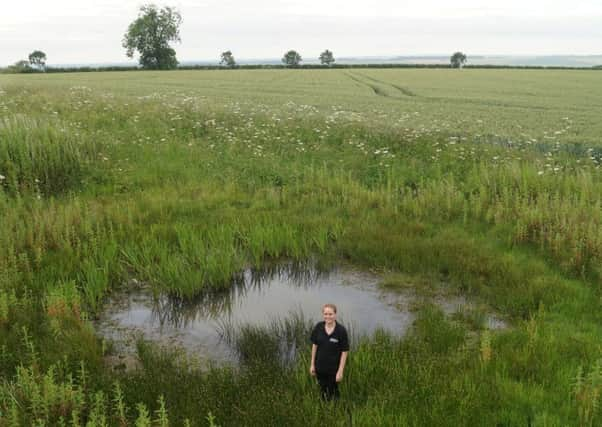Project seeks to plunge into mysteries of forgotten ponds


The truth is rather more prosaic as they were probably more likely to have been replenished with rainfall.
But whether it was the mist condensing on the chilly heights where “dew ponds” are to be found, or the rain, they are a dying art.
There are now thought to be just 90 left across Yorkshire.
Advertisement
Hide AdAdvertisement
Hide AdOne of the highest concentrations is in the Yorkshire Wolds, where around 20 dew ponds in need of urgent restoration are the focus of a new project led by Yorkshire Wildlife Trust.
Over the next two years the trust will be working with farmers to restore a network of the historic ponds stretching more than 20 miles from Thixendale to Fordon.
Created predominantly in the 18th and 19th centuries, the ponds provided crucial water for livestock in the dry uplands of the High Wolds.
As well as their cultural significance, they are also important in terms of the habitat they offer to species like the common toad - which is no longer common - and unusual plants like tassel stonewort. They also provide invertebrates for endangered species like lapwings to feed on.
Advertisement
Hide AdAdvertisement
Hide AdAs part of the project, funded by the Heritage Lottery Fund, the trust will build a demonstration pond at Driffield Showground which will be seen by tens of thousands of visitors each year.
The project aims to train up volunteers to survey and restore ponds, so they can be maintained in future.
It will also capture memories and stories of a bygone farming age.
Peoples’ stories and the discoveries made in the course of the project will be developed into a new online resource.
Advertisement
Hide AdAdvertisement
Hide AdWolds Dew Pond Project Officer Emily McGregor, who works for YWT, said: “People are at the heart of this project and we are keen to involve the local community in the full range of activities.
“We want to reconnect people with the history and wildlife of dew ponds so that these features once again become a core part of the culture and landscape of the Wolds.”